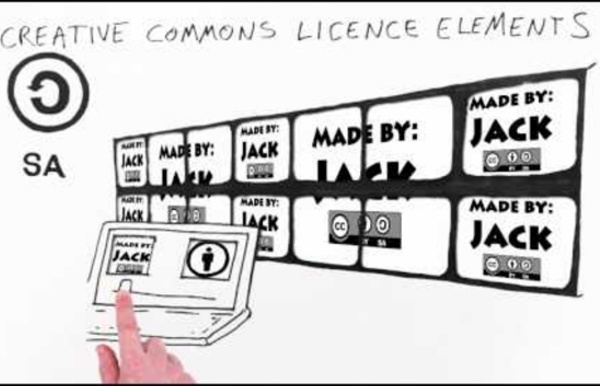



http://www.youtube.com/watch?v=AeTlXtEOplA
Creative Commons Resources for Classroom Teachers Posted by Bill Ferriter on Sunday, 09/08/2013 If your students are using images, video, or music in the final products that they are producing for your class, then it is INCREDIBLY important that you introduce them to the Creative Commons -- an organization that is helping to redefine copyright laws. With a self-described goal to "save the world from failed sharing," the Creative Commons organization has developed a set of licenses that content creators can use when sharing the work. While every Creative Commons license requires that attribution to be given to the original owner of a piece of content, every license also details the ways that content can be used by others WITHOUT having to ask for permission in advance. That makes Creative Commons content perfect for use in classroom projects.
Education Sector - Digital Citizenship - netsafe.org.nz Digital Citizenship in New Zealand Schools The significant changes to technology and the way it is used presents new challenges for schools to create an environment where teachers and students are confident in the safe and secure use of ICT. The focus of cybersafety has expanded beyond policies and procedures to include discussion, action, and teachable moments in the classroom. Students need to build skills and knowledge to effectively manage cyber challenges themselves, and become confident and successful digital citizens. In response to the changing needs of schools, NetSafe has developed the Learn: Guide: Protect: framework. Click here to read more about Digital Citizenship in New Zealand Schools and the Learn: Guide: Protect: framework
The CC licenses From WikiEducator CC[1] licenses utilise four terms (with standard abbreviations and identifying symbols) to represent four aspects of copyright which a creator may choose to apply to a creative work. These four terms are combined in various ways to create a number of separate licenses.
Open Science and Crowd Science: Selected Sites and Resources Open Science and Crowd Science: Selected Sites and Resources Diane (DeDe) Dawson Natural Sciences Liaison Librarian University of Saskatchewan Saskatoon, Saskatchewan, Canadadiane.dawson@usask.ca Copyright 2012, Diane (DeDe) Dawson. Used with permission.
New Zealand New Zealand Case Studies Knives at Noon Knives at Noon are an indie-electric-rock band based in Dunedin, New Zealand, who utilise online file sharing technology to collaborate online. Otago Polytechnic Attribution-ShareAlike 3.0 Unported — CC BY-SA 3.0 This deed highlights only some of the key features and terms of the actual license. It is not a license and has no legal value. You should carefully review all of the terms and conditions of the actual license before using the licensed material.
Copyright Exceptions for Instructors The U.S. Copyright Code provides for the educational use of copyrighted material without the permission of the copyright holder under certain conditions. To find out if your intended use meets the requirements set out in the law, use this free, online tool. Copyright in Schools / Homepage - Te Kete Ipurangi (TKI) This section provides general information about copyright and licensing of material and how it affects New Zealand primary and secondary schools. In particular, it informs the main groups within school communities about their basic rights and responsibilities in relation to copyright material, and recent developments in legislation. It is a guide only and not intended to be legal advice or address every possible situation where copyright may be relevant. To find out about recent developments in legislation go to: What is the Copyright (Infringing File Sharing) Amendment Act? For an overview of copyright legislation, go to: What is copyright?
Attribution 3.0 Unported — CC BY 3.0 This deed highlights only some of the key features and terms of the actual license. It is not a license and has no legal value. You should carefully review all of the terms and conditions of the actual license before using the licensed material. Creative Commons is not a law firm and does not provide legal services. Distributing, displaying, or linking to this deed or the license that it summarizes does not create a lawyer-client or any other relationship. Copyright (USG) As a system devoted to providing the highest quality undergraduate and graduate education to students; pursuing leading-edge basic and applied research, scholarly inquiry, and creative endeavors; and bringing intellectual resources to the citizenry, the University System of Georgia is committed to respecting the rights of copyright holders and complying with copyright law. The University System of Georgia recognizes that the exclusive rights of copyright holders are balanced by limitations on those rights under federal copyright law, including the right to make a fair use of copyrighted materials and the right to perform or display works in the course of face-to-face teaching activities. The University System of Georgia facilitates compliance with copyright law and, where appropriate, the exercise in good faith of full fair use rights by faculty and staff in teaching, research, and service activities. Specifically, the University System of Georgia